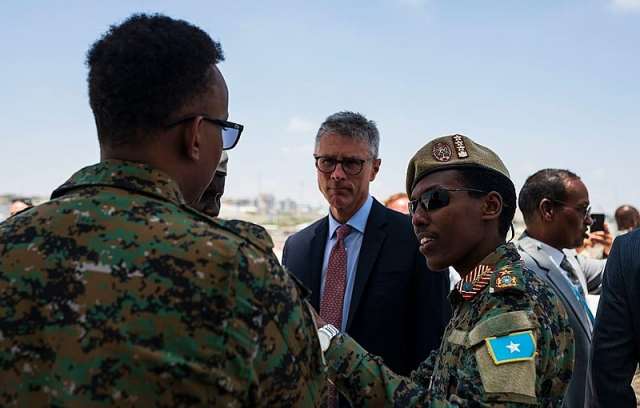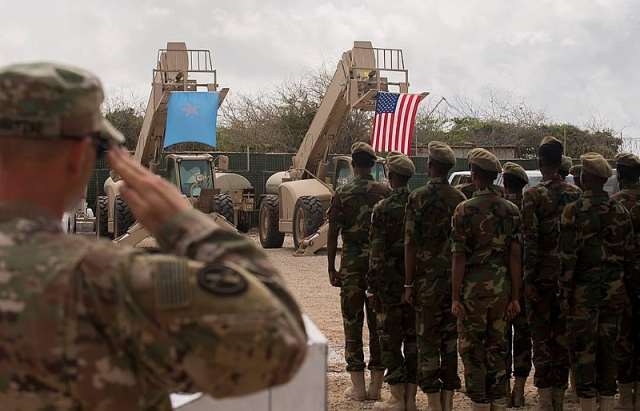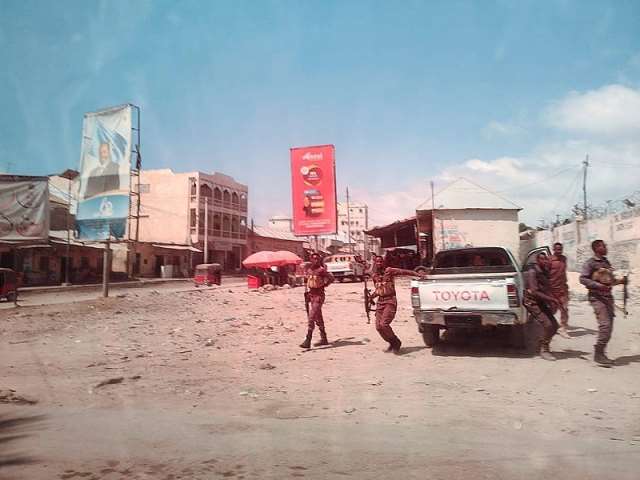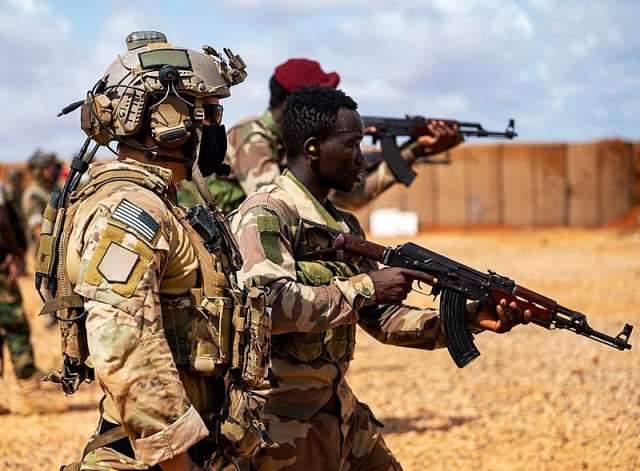13% Derivation; DESOPADEC And Oil And Gas Host Communities
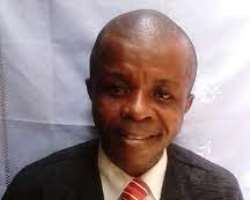
What’s new? For sixteen-plus years, the U.S. has helped wage war on Al-Shabaab militants in Somalia. While President Joe Biden has wound down U.S. participation in some post-9/11 conflicts, he has approached Somalia differently – reversing his predecessor’s decision to withdraw U.S. forces. U.S. troops are now supporting Mogadishu’s offensive against Al-Shabaab.
Why does it matter? Washington’s Somalia policy focuses on containing the perceived Al-Shabaab threat to U.S. interests militarily, with too little focus on reconciliation and conflict resolution. A major mishap involving U.S. forces or changing U.S. politics could lead Washington to withdraw.
What should be done? The U.S. should rebalance its policy by increasing stabilisation assistance and better helping Somalia address political rifts impeding conflict resolution. The offensive creates governance and reconciliation opportunities the U.S. should encourage. Washington should also prepare for the possibility of negotiations between Mogadishu and Al-Shabaab.
Executive Summary
In May 2022, U.S. President Joe Biden reversed the eleventh-hour decision of his predecessor, Donald Trump, to pull U.S. troops out of Somalia. Biden wanted U.S. soldiers on the ground to help the Danab, an elite Somali special operations unit fighting the Al-Shabaab Islamist insurgency. But the seemingly straightforward decision masked a tangle of contradictions and questions. On one hand, Biden had run for president promising to end U.S. engagement in “forever wars” launched after the 11 September 2001 terrorist attacks on U.S. soil. On the other hand, his administration had proven willing to continue certain post-9/11 missions. But to what ultimate end was, in Somalia, unclear. Even with recent gains, a decisive victory for Somali forces over Al-Shabaab seems out of reach. Meanwhile, U.S. politics are fickle, and a change of administration could mean an abrupt end to the mission. If the U.S. wants its engagement in Somalia to have lasting benefits for regional peace and security, it should rebalance its approach. It should develop a peacebuilding strategy focused on stabilisation and political reconciliation to complement its military operations to contain Al-Shabaab.
For years, the U.S. agenda in Somalia has been centred around counter-terrorism. Following the 9/11 attacks, the U.S. embarked on a series of military campaigns – colloquially known as the “global war on terror” – to destroy al-Qaeda and its affiliates. Seeing Somalia as a largely ungoverned space where jihadist militants could thrive, Washington soon made the country a front in its wide-ranging war. Its targets were Islamist militants it deemed linked to al-Qaeda, a category that eventually widened to include Al-Shabaab. It mostly went after the insurgents from the air while an African Union (AU) force battled them on the ground, but in 2013, President Barack Obama also sent a small contingent of U.S. troops into Somalia to train a special operations unit, the Danab, to fight Al-Shabaab. U.S. military operations reached their peak under Obama’s successor, President Donald Trump, whose “gloves off” approach failed to bring the group to heel.
Then, shortly after losing his bid for re-election in November 2020, the mercurial Trump shifted gears, signing a one-page directive ordering the withdrawal of U.S. troops from Somalia. The Pentagon followed the letter of Trump’s order, repositioning units to neighbouring Djibouti and Kenya, but the troops continued to cycle in and out of Somalia, supporting the Danab as though little had changed. The general in charge, Stephen Townsend, described the new force posture as “commuting to work”. It might have been less efficient than the prior arrangement, and the troops might have been exposed to greater risk, but it kept the mission alive.
This situation presented President Biden with an awkward choice when he took the reins of government in January 2021. As the U.S. approached the twentieth anniversary of the 9/11 attacks still fighting a sprawling war on terror, he had promised on the campaign trail to wind down what he described as “forever wars”. But the commitment was less than tightly framed, and included nothing specific with respect to Somalia. The question of how to translate the stump speeches into policy was left to be worked out through a series of policy reviews to be conducted during his first months in office.
After the deliberations over U.S. engagement in Somalia were concluded, Biden made his choice: the troops would return. There were several factors at play. First, there was an argument that U.S. troops had never really left but were shuttling in and out of the country, a half-in-half-out posture that at some level defied common sense. Secondly, Townsend mounted a vigorous advocacy campaign contending that Al-Shabaab posed a threat to U.S. interests abroad and even the United States itself – persuading the Defense Department to advocate for sending the troops back in. Thirdly, the State Department and National Security Council staff sided with the Pentagon, believing U.S. engagement still offered more benefits than costs to U.S. interests in Somalia and the surrounding region.
It was at least as important, however, that no one was really pushing back at the Defense Department’s position. While the Biden team took a major strategic decision (at some political cost) to remove U.S. forces from Afghanistan, once the central front of the war on terror, it did not make a wholesale commitment to rolling up all the post-9/11 conflicts, at least not right away. In places where it judged U.S. troops to serve an interest at low cost and low risk, Biden and his team were content to let operations continue. Somalia emerged as one such place.
The question is what happens now. Somalia has had pieces of good news of late. The AU reconfigured, renamed and extended its mission – albeit only until 2024 – with UN and European Union support. After lengthy delays, federal elections wrapped up with the selection, in May 2022, of a new president, Hassan Sheikh Mohamud. Mohamud is both more fiercely committed to fighting Al-Shabaab and less divisive in his political style than his predecessor. U.S. troops are now working with Somali forces to press an offensive against the insurgents; a first phase focused in central Somalia made good progress, largely because of local clan collaboration; phase two (which will focus on the south) will be much more difficult.
The primary U.S. focus [in Somalia] is on containing the perceived threat posed by Al-Shabaab militarily.
But Somalia still faces enormous challenges. Most experts believe that Al-Shabaab cannot be defeated militarily. Rifts between the central government in Mogadishu and the federal member states are both deep and potentially dangerous, as are fault lines among different factions in the states themselves. In the meantime, the U.S. strategy appears to be to keep Somalia “in a box” in the words of one official. That is, the primary U.S. focus is on containing the perceived threat posed by Al-Shabaab militarily. These efforts are not, however, joined up with a long-term political or other approach that could help end the conflict.
The current approach might make sense if Washington intended to remain in Somalia forever, but Mogadishu cannot bank on that, and neither should U.S. policymakers. There are simply too many contingencies that could bring about a quick exit. A change of administration or an incident that results in U.S. casualties could easily reset cost-benefit calculations in the U.S., and lead Washington to complete the disengagement that Trump set out to accomplish but failed to make happen. Rather, U.S. and Somali leaders should look at how to optimise Washington’s engagement so that its actions on the battlefield are better balanced by efforts to achieve durable change though non-military means.
The U.S. should reallocate resources, and the attention of its senior officials, so that more effort goes into stabilisation – which can include a range of activities that help bring about conditions for peace – and political reconciliation. While Washington is appropriately cautious about what it can achieve in these realms, that may have led it to undersell what it has to contribute. It could usefully do more by (for example) funding quick-reaction projects in areas freed from Al-Shabaab’s grip, helping Mogadishu launch a constitutionally required reconciliation mechanism and pushing other donors to finance this work. The U.S. should also quietly prepare for the possibility that the conflict could end through negotiations with the insurgents, which it should not impede.
After more than fifteen years fighting in Somalia, Washington must know that at some point it will need to pull back. In order to leave a legacy commensurate with its investment, it should broaden its approach, and do more to help Somalia build the cohesive political culture that can best serve as a platform for peace.
Mogadishu/Nairobi/New York/Washington/Brussels, 27 June 2023
A cursory look at the Oil and Gas host communities in Delta state reveals an area tensed up with a lot of issues, intrigues and hiccups. Their anger in the present moment, going by media reports, is precipitated by the alleged opaque manner the former governor of the state, Senator Dr Ifeanyi Okowa, managed the 13% Oil Derivation Fund that accrued to the state.
Correspondingly, It will not be characterized as hasty to conclude that there is presently in Delta state no agency or commission that is troubled as the Delta State Oil Producing Area Development Commission(DESOPADEC), an agency created by the enabling Act in Delta state, to secure 50% of the 13% Oil Derivation Fund accruing to Delta State government and the received sum used for rehabilitation and development of oil-producing areas of the state as well as carry out other development projects as may be determined from time to time.
Supporting the above assertions is a recent statement by Edwin Clark, convener of the Pan-Niger Delta Forum (PANDEF), where he alleged that Ifeanyi Okowa, former governor of Delta, misappropriated the state’s derivation fund amounting to N1.760 trillion. Pa Edwin’s bombshell was followed in quick succession by protest staged in Abuja by representatives of the Delta state Oil and gas host communities, calling on Economic and Financial Crime Commission (EFCC), to investigate the immediate past Governor of Delta State, Ifeanyi Okowa, for allegedly misappropriating over N1tn oil derivation fund belonging to the state during his tenure.
While the coastal dwellers in their statement insisted that the former governor unlawfully diverted the aforementioned sum, the former Governor’s men are at work, thwarting every attempt to rubbish the reputation of their former boss. For instance, the immediate-past Commissioner for Information in Delta State, Ehiedu Charles Aniagwu, recently told the world that all the money Okowa’s administration got from Federation Account Allocation Committee, including derivation for the whole period in office amounted to N2.1trn and therefore described as wild goose chase HOSTCOM’s narrative on N1trn.
But in all this, what this piece observed could be safely categorized into three parts; first, Senator Okowa’s led government brought to the oil and gas host communities flashes of streets/internal roads.
Beyond this acknowledgement, there exists also in the state a deeply neglected coastal area which doubles as oil and gas host communities where poverty, disease and illiteracy walked their creeks, rivers and estuaries and as a resultant effect, forced many children out of school not because of their unwillingness to learn, but occasioned by non availability/provision of schools in the area by the government. These are verifiable facts!
A movement by boat from Egbema Kingdom in Warri North Local Government Council to Gbaramatu Kingdom in Warri South, from Ogulaha Kingdom in Burutu Local Government to Kabowe in Patani Local Government Area, down to Bomadi Local Government Local Councils, among others, reveals a seemingly similar experience. They are all oil and gas bearing kingdoms and communities and play host to major crude oil platforms operated by the International Oil Companies (IOCs), but they have nothing to show for it.
Secondly, without going into critical analysis of claims by the immediate past Governor of Delta State, Senator Dr Ifeanyi Okowa, that DESOPADEC got what was due to it according to the law establishing it, this piece believes that such declaration on DESOPADEC receiving a total of N208 billion in the eight years of his administration, as its rightful statutory funds appears inaccurate and, therefore, cannot hold water when faced with embarrassing arguments.
DESOPADEC, as noted in the first paragraph, is to secure 50% of the 13% Oil Derivation Fund accruing to Delta State government. With this in mind; is the former Governor saying that it was only 416 Billion naira that accrued as 13% derivation to the state in the past 8years, which summed DESOPADEC’s statutory 50% to N208 billion? Again, instead of giving a cumulative amount received from the Federation Account Allocation Committee, what stops the former Governor and his supporters from specifying the exact amount received as 13% derivation?
While answer(s) to the above questions raised is awaited, the third and most dramatic point is DESOPADEC-specific. The non satisfactory development of the area within this period under review in my view remains an emblematic sign that the affairs of the coastal areas of the state was handed over to a bunch of politicians masquerading as leaders but lack public leadership acumen and orientation. To use the words of a public affairs commentator, they were people that ‘spend more time with wines than with books’.
Aside from turning the coastal part of the state to an endangered species via wicked human capital neglect and infrastructural abandonment, these ‘leaders’, in turn, neglected community relations and communication. And because of this non-participatory leadership style and engagement, each time communities ask for bread, the agency makes ‘stones’ available and when the communities ask for fish, DESOPADEC provides a ‘snake’.
This piece will highlight two recent separate but related examples to support the above claims.
In October 2022, it was in the news that in the face of grave developmental challenges confronting the coastal dwellers in the state crying for attention, DESOPADEC leadership against all known logic opted for the donation of 50 grass-cutting machines to the people of Okerenkoko community in Gbaramatu Kingdom, Warri South-Local Government Area of Delta state. Presenting the machines, the DESOPADEC commissioner noted that the donation of grass-cutting machines to the community was statutorily captured in the commission’s 2021 budget; adding that the project was principally influenced by him''.
For those that are not conversant with the Okerenkoko community and may be tempted to believe that the donation was a right step taken in the right direction, they may see nothing wrong with the donation. But for someone that is familiar with the aforementioned community, the decision to donate these machines qualifies as a misguided priority.
In fact, there is everything wrong with the development. For instance, there is evidence which points to the fact that the community was neither consulted nor carried along before the decision was made. The grass-cutting machine donation, in the opinion of this piece, failed the NEEDS assessment stipulations.
The words of the youth leader from the community support this assertion.
Reacting to the development, the youth leader who spoke on behalf of the community among other things, said, “We heard about the skill acquisition that is ongoing. We are appealing to the Commissioner to at least create some avenue for those skill acquisitions for our ladies, for the youth in this community so that they can go out there and learn skills to back themselves, put themselves in order.”
From the above comment, one thing stands out; the fact that if given the opportunity, these knowledge-hungry youths in the community, who will provide the future leadership needs of the country, would have opted for skill acquisition. Instead of grass-cutting machines, the youths in the community would have preferred access to good schools where they will learn and compete with their peers across the globe. They were not just asking for more, rather, they asked for something new, different and more beneficial to their future.
Similarly, in November 2022, barely one month after, It was again reported that DESOPADEC leadership, invited the Local Government Chairmen of Burutu, Bomadi, Patani and Warri South West Local Government Areas of the state, to a shop in Warri city, Delta state, where it handed over relief materials purchased for the victims of the flood that ravaged almost all the communities/villages in the afore mentioned local Government councils.
The items distributed to the affected local governments were bags of garri, bags of rice, and bags of onions, bags of beans, noodles, vegetable oil, palm oil, toiletries, and foams, among others.
While the donation to flood victims is understandable, commendable and appreciated, some questions immediately come to mind as to why DESOPADEC management decided to be compassionate by proxy? What prevented DESOPADEC management from visiting the real victims of the flood to personally empathize with them? Is DESOPADEC management unaware that in the applied sense of the word, the real empathy lies more in the visit and emotional consolation of the flood victims than the so-called relief material sent through proxy? What will it cost DESOPADEC to pay a visit to these villages/communities in creeks?
What is the distance from Warri to Patani, Burutu and Bomadi that DESOPADEC management cannot send delegation? How will DESPODEC management ensure/ascertain that the relief materials got to the targeted beneficiaries without getting lost on transit or misdirected? If DESOPADEC management cannot visit the creeks in this period of crisis, what time will be more/most suitable to visit these people?
Even as this ugly leadership situation ‘blossoms’ in the coastal communities of Delta State, the truth remains that if we look hard enough at the moment, we shall as a people discover that the challenge confronting the region is not too difficult to grasp. Rather, the challenge flourishes because agencies such as DESOPADEC and their administrators have routinely become reputed for taking decisions that breed poverty.
For me, While it is important that DESOPADEC's new leadership commits to mind the above admonition, this piece holds the opinion that to sustainably solve the problem of the coastal dwellers in the state, a compelling point the state government must not fail to remember is the present call by stakeholders on DESOPADEC management to emulate the Chevron Nigeria Limited template in community engagement. A template that deals directly with the host community and an approach the communities claimed has worked perfectly in the area of infrastructural provision.
On his part, Governor Sheriff Oborevwori of Delta State should within this period execute for the oil and gas host communities legacy projects that will stand the test of time. In fact, it will not be out of place if a bridge is constructed to link and open these oil bearing communities.
Utomi Jerome-Mario is the Programme Coordinator (Media and Public Policy), Social and Economic Justice Advocacy (SEJA), A Lagos-Based Non Governmental Organization (NGO). [email protected]/08032725374 .
